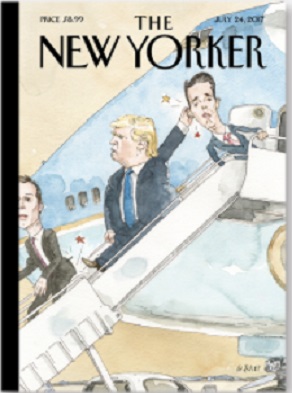Dear Commons Community,
New York Times columnist, Nicholas Kristoph, while visiting Liberia, comments today about the sad state of government-run public schools. Teachers don’t come to classes, books are not available, and students can’t read or do arithmetic. He blames this on government corruption. and then puts in a plug for private, for-profit schools operated by Bridge International Academies, Here is an excerpt:
“The status quo has failed,” George Werner, Liberia’s education minister, told me. “Teachers don’t show up, even though they’re paid by the government. There are no books. Training is very weak. School infrastructure is not safe.
“We have to do something radical,” he added.
So Liberia is handing over some public schools to Bridge International Academies, a private company to see if it can do better.
So far, it seems it can — much better. An interim study just completed shows Bridge schools easily outperforming government-run schools in Liberia, and a randomized trial is expected to confirm that finding. It would be odd if schools with teachers and books didn’t outperform schools without them.
If the experiment continues to succeed, Liberia’s education minister would like to hand over “as many schools as possible” to private providers. Countries in Asia and others in Africa are also interested in adopting this model.
The idea of turning over public schools to a for-profit company sparks outrage in some quarters. There’s particular hostility to Bridge, because it runs hundreds of schools, both public and private, in poor countries.
“Bridge’s for-profit educational model is robbing students of a good education,” Lily Eskelsen Garcia, president of the National Education Association, America’s largest teachers union, declared last fall. Education International, which represents the N.E.A. and other teachers unions around the world, similarly excoriates Bridge and the Liberian government.
I understand critics’ fears (and share some about for-profit schools in the U.S.). They see handing schools over to Bridge as dismantling the public education system — one of the best ideas in human history — for private profit.”
Kristoph concludes:
“We can all agree that the best option would be for governments to offer better schools, with books and teachers in the room. Indeed, Liberia is trying to improve all schools, and it is winnowing out payments to “ghost teachers,” who don’t exist except on paper.
But my travels have left me deeply skeptical that government schools in many countries can be easily cured of corruption, patronage and wretched governance, and in the meantime we fail a generation of children.
In the United States, criticisms of for-profit schools are well grounded, for successive studies have found that vouchers for American for-profit schools hurt children at least initially (although the evidence also shows that in the U.S., well-run charters can help pupils).
The situation in countries like Liberia is different, and when poor countries recognize that their education systems are broken and try to do the right thing for children, it doesn’t help to export America’s toxic education wars.”
From my own limited travels in developing areas, I tend to agree with Kristoph. The culture of corruption that permeates in many government services in some countries is too widespread to be solved in the near future. For the sake of children shackled to non-functioning public schools, any alternative even, if it is for-profit, should be considered.
Tony



